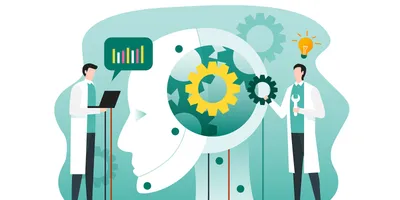Artificial intelligence (AI) has become an integral part of modern lab work, automating calculations, optimizing workflows, and generating insights at unprecedented speed. Yet the rise of intelligent laboratory automation has prompted an important question: how can labs preserve human expertise as technology evolves?
The AI Reality Check report from Lab Innovations suggests that the answer lies not in resisting automation but in managing it strategically. When used thoughtfully, AI can strengthen technical competence, improve data quality, and empower scientists to focus on interpretation and innovation.
“Without AI literacy, lab personnel and their work are vulnerable to mistakes,” write Marie Oldfield, PhD, AI lead at the Institute of Science and Technology (IST), and Joan Ward, deputy chair of the IST. “Accreditation and continuous professional development give staff the confidence to use new tools responsibly.”
Rather than a threat, automation offers laboratories a chance to reimagine technical roles and invest in the next generation of scientific talent.
Redefining expertise in the age of laboratory automation
As algorithms take over repetitive or computational tasks, scientists can redirect their expertise toward higher-order analysis, validation, and experimental design. Manual proficiency is giving way to digital dexterity—skills such as data curation, model interpretation, and ethical decision-making.
For laboratory managers, this shift underscores the need to map evolving competencies. Which functions are now automated? Which require human judgment? Building clarity around these boundaries helps leaders design training and staffing models that enhance, rather than erode, scientific capability.
Building workforce development into laboratory strategy
Cross-training remains one of the most effective ways to preserve institutional knowledge. Pairing early-career researchers with senior technicians promotes knowledge transfer in both directions: digital fluency from younger staff and experiential context from veterans.
“Continuous professional development should be as standard in science as it is in engineering or medicine,” Oldfield and Ward emphasize.
Encouraging staff rotations between manual and automated methods keeps core competencies sharp. Programs like the IST’s Registered Technician in AI (RTechAI) credential reinforce the message that understanding both the technology and the science is essential for quality and compliance.
Positioning AI in the lab as an ally, not an autopilot
AI performs best when paired with human oversight. Laboratories that treat automation as an extension of human judgment—not a replacement—see greater accuracy and accountability.
Managers can set clear expectations: AI may recommend, but people decide. Establishing checkpoints where staff validate outputs or perform manual spot-checks ensures that analytical reasoning remains integral to daily work.
This “human-in-the-loop” approach keeps responsibility, ethics, and critical thinking at the center of scientific operations.
Leadership strategies to build a resilient, adaptive workforce
Laboratory managers have the authority to turn automation into an engine for professional growth. Practical steps include:
- Conduct skills-mapping audits to identify emerging gaps
- Integrate AI fundamentals into onboarding and annual CPD plans
- Create mentorship networks that pair technical specialists with data scientists
- Encourage participation in workshops on validation, bias detection, and data ethics
- Recognize and reward employees who demonstrate both technical and analytical adaptability
Such initiatives transform anxiety about automation into enthusiasm for advancement. A workforce that continuously learns will adapt faster to new tools and sustain high levels of performance and morale.
Balancing efficiency with expertise
AI is redefining how laboratories operate, but the value of human judgment remains non-negotiable. As automation grows, so too does the need for skilled professionals who understand its limits and possibilities.
By treating AI as a catalyst for skill evolution—not erosion—laboratory leaders can achieve the best of both worlds: operational efficiency powered by technology and scientific excellence driven by people.
The laboratories that succeed in this balance will not just keep pace with digital transformation—they’ll lead it.
This article was created with the assistance of Generative AI and has undergone editorial review before publishing.














